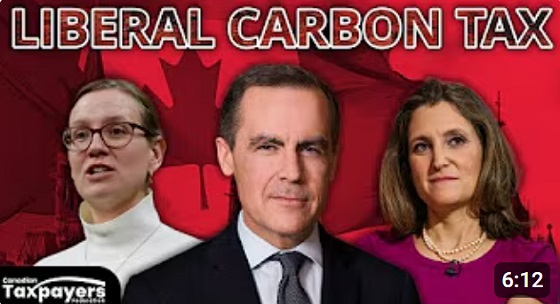Business
Within a month, 6 largest U.S. banks leave UN Net-Zero Banking Alliance

From The Center Square
Texas Comptroller Glenn Hegar has expressed skepticism about companies claiming to withdraw from ESG commitments, noting there is often doublespeak in their announcements
Within one month of each other, six of the largest U.S. banks left the United Nations Net-Zero Banking Alliance (NZBA) not soon after Donald Trump was elected president.
Last month, Goldman Sachs was the first to withdraw from the alliance, followed by Wells Fargo, The Center Square reported.
By Dec. 31, Citigroup and Bank of America left, followed by Morgan Stanley on Jan. 6 and JPMorgan on Jan. 7.
They did so after joining the alliance several years ago pledging to require environmental social governance standards (ESG) across their platforms, products and systems.
According to the “bank-led and UN-convened” alliance, global banks joined, pledging to align their lending, investment and capital markets activities with a net-zero greenhouse gas emissions by 2050, NZBA explains.
Since April 2021, 141 banks in 44 countries with more than $61 trillion in assets had joined NZBA, the alliance says. That’s down from 145 banks with more than $73 trillion in assets it reported last month after Wells Fargo and Goldman Sachs withdrew.
“In April 2021 when NZBA launched, no bank had set a science-based sectoral 2030 target for its financed emissions using 1.5°C scenarios,” it says. “Today, over half of NZBA banks have set such targets.”
They started to drop off after President-elect Donald Trump vowed to increase domestic oil and natural gas production and pledged to go after “woke” companies.
They also announced their departure two years after 19 state attorneys general launched an investigation into them for alleged deceptive trade practices connected to ESG.
Four states led the investigation: Arizona, Kentucky, Missouri and Texas. Others involved include Arkansas, Indiana, Kansas, Louisiana, Mississippi, Montana, Nebraska, Oklahoma, Tennessee and Virginia. Five state investigations aren’t public for confidentiality reasons.
In Texas, the state legislature passed a bill, which Gov. Greg Abbott signed into law, that prohibits governmental entities from entering into contracts with companies that boycott the oil and natural gas industry. The law also requires state entities to divest from financial companies that boycott the industry through ESG policies.
To date, 17 companies and 353 publicly traded investment funds are on Texas’ ESG divestment list.
After financial institutions withdraw from the NZBA, they are permitted to do business with Texas, the office of Texas Attorney General says.
However, Texas Comptroller Glenn Hegar has expressed skepticism about companies claiming to withdraw from ESG commitments, noting there is often doublespeak in their announcements, The Center Square reported.
Notably, when leaving the alliance, a Goldman Sachs spokesperson said the company was still committed to the NZBA goals and has “the capabilities to achieve our goals and to support the sustainability objectives of our clients,” EST Today reported. The company also said it was “very focused on the increasingly elevated sustainability standards and reporting requirements imposed by regulators around the world.”
“Goldman Sachs also confirmed that its goal to align its financing activities with net zero by 2050, and its interim sector-specific targets remained in place,” EST Today reported.
Five Goldman Sachs funds are listed in Texas’ ESG divestment list.
While announcing it was leaving the alliance, a JPMorgan spokesperson also affirmed the company’s commitment to reaching net-zero emissions. “We aim to contribute to real-economy decarbonization by providing our clients with the advice and capital needed to transform business models and lower carbon intensity,” the spokesperson said, Reuters reported.
Yahoo!Finance also notes that JPMorgan will continue to work with Glasgow Financial Alliance for Net Zero. “We will also continue to support the banking and investment needs of our clients who are engaged in energy transition and in decarbonizing different sectors of the economy,” the spokesperson said.
Citigroup and Bank of America also remain committed to net-zero objectives, including continuing to report on efforts to achieve 2030 net-zero targets and reducing CO2 emissions associated with corporate lending, FiNews reported.
The Comptroller’s office remains committed to “enforcing the laws of our state as passed by the Texas Legislature,” Hegar said. “Texas tax dollars should not be invested in a manner that undermines our state’s economy or threatens key Texas industries and jobs.”
2025 Federal Election
MEI-Ipsos poll: 56 per cent of Canadians support increasing access to non-governmental healthcare providers

-
Most believe private providers can deliver services faster than government-run hospitals
-
77 per cent of Canadians say their provincial healthcare system is too bureaucratic
Canadians are increasingly in favour of breaking the government monopoly over health care by opening the door to independent providers and cross-border treatments, an MEI-Ipsos poll has revealed.
“Canadians from coast to coast are signalling they want to see more involvement from independent health providers in our health system,” explains Emmanuelle B. Faubert, economist at the MEI. “They understand that universal access doesn’t mean government-run, and that consistent failures to deliver timely care in government hospitals are a feature of the current system.”
Support for independent health care is on the rise, with 56 per cent of respondents in favour of allowing patients to access services provided by independent health entrepreneurs. Only 25 per cent oppose this.
In Quebec, support is especially strong, with 68 per cent endorsing this change.
Favourable views of accessing care through a mixed system are widespread, with three quarters of respondents stating that private entrepreneurs can deliver healthcare services faster than hospitals managed by the government. This is up four percentage points from last year.
Countries like Sweden and France combine universal coverage with independent providers and deliver faster, more accessible care. When informed about how these health systems run, nearly two in three Canadians favour adopting such models.
The poll also finds that 73 per cent of Canadians support allowing patients to receive treatment abroad with provincial coverage, which could help reduce long wait times at home.
Common in the European Union, this “cross-border directive” enabled 450,000 patients to access elective surgeries in 2022, with costs reimbursed as if they had been treated in their home country.
There’s a growing consensus that provincial healthcare systems are overly bureaucratic, with the strongest agreement in Alberta, B.C., and Quebec. The proportion of Canadians holding this view has risen by 16 percentage points since 2020.
Nor do Canadians see more spending as being a solution: over half say the current pace of healthcare spending in their province is unsustainable.
“Governments shouldn’t keep doubling down on what isn’t working. Instead, they should look at what works abroad,” says Ms. Faubert. “Canadians have made it clear they want to shift gears; now it’s up to policymakers to show they’re listening.”
A sample of 1,164 Canadians aged 18 and older was polled between March 24th and March 28th, 2025. The margin of error is ±3.3 percentage points, 19 times out of 20.
The results of the MEI-Ipsos poll are available here.
* * *
The MEI is an independent public policy think tank with offices in Montreal, Ottawa, and Calgary. Through its publications, media appearances, and advisory services to policymakers, the MEI stimulates public policy debate and reforms based on sound economics and entrepreneurship.
2025 Federal Election
POLL: Canadians say industrial carbon tax makes life more expensive

The Canadian Taxpayers Federation released Leger polling showing 70 per cent of Canadians believe businesses pass on most or some of the cost of the industrial carbon tax to consumers. Meanwhile, just nine per cent believe businesses pay most of the cost.
“The poll shows Canadians understand that a carbon tax on business is a carbon tax on Canadians that makes life more expensive,” said Franco Terrazzano, CTF Federal Director. “Only nine per cent of Canadians believe Liberal Leader Mark Carney’s claim that businesses will pay most of the cost of his carbon tax.
“Canadians have a simple question for Carney: How much will your carbon tax cost?”
The federal government currently imposes an industrial carbon tax on oil and gas, steel and fertilizer businesses, among others.
Carney said he would “improve and tighten” the industrial carbon tax and extend the “framework to 2035.” Carney also said that by “changing the carbon tax … We are making the large companies pay for everybody.”
The Leger poll asked Canadians who they think ultimately pays the industrial carbon tax. Results of the poll show:
- 44 per cent say most of the cost is passed on to consumers
- 26 per cent say some of the cost is passed on to consumers
- 9 per cent say businesses pay most of the cost
- 21 per cent don’t know
Among those decided on the issue, 89 per cent of Canadians say businesses pass on most or some of the cost to consumers.
“Carbon taxes on refineries make gas more expensive, carbon taxes on utilities make home heating more expensive and carbon taxes on fertilizer plants increase costs for farmers and that makes groceries more expensive,” Terrazzano said. “A carbon tax on business will push our entrepreneurs to cut production in Canada and increase production south of the border and that means higher prices and fewer jobs for Canadians.”
-

 2025 Federal Election2 days ago
2025 Federal Election2 days agoASK YOURSELF! – Can Canada Endure, or Afford the Economic Stagnation of Carney’s Costly Climate Vision?
-

 Alberta2 days ago
Alberta2 days agoMade in Alberta! Province makes it easier to support local products with Buy Local program
-

 2025 Federal Election2 days ago
2025 Federal Election2 days agoCSIS Warned Beijing Would Brand Conservatives as Trumpian. Now Carney’s Campaign Is Doing It.
-

 2025 Federal Election2 days ago
2025 Federal Election2 days agoInside Buttongate: How the Liberal Swamp Tried to Smear the Conservative Movement — and Got Exposed
-

 Bruce Dowbiggin1 day ago
Bruce Dowbiggin1 day agoIs HNIC Ready For The Winnipeg Jets To Be Canada’s Heroes?
-

 Dr. Robert Malone1 day ago
Dr. Robert Malone1 day agoThe West Texas Measles Outbreak as a Societal and Political Mirror
-

 COVID-191 day ago
COVID-191 day agoCOVID virus, vaccines are driving explosion in cancer, billionaire scientist tells Tucker Carlson
-

 Health1 day ago
Health1 day agoHorrific and Deadly Effects of Antidepressants







